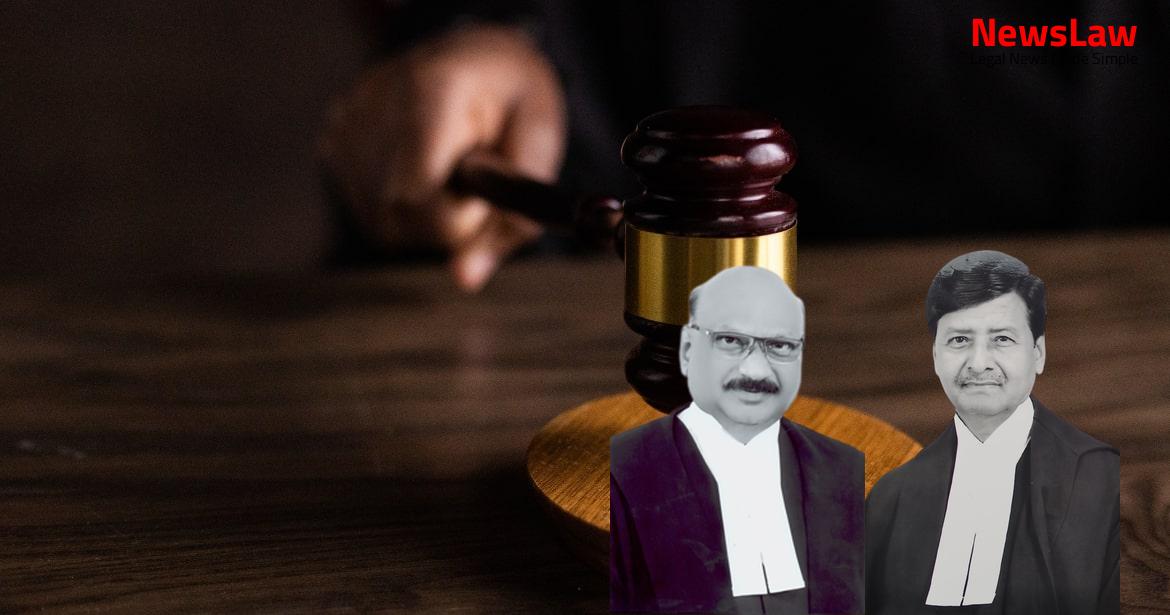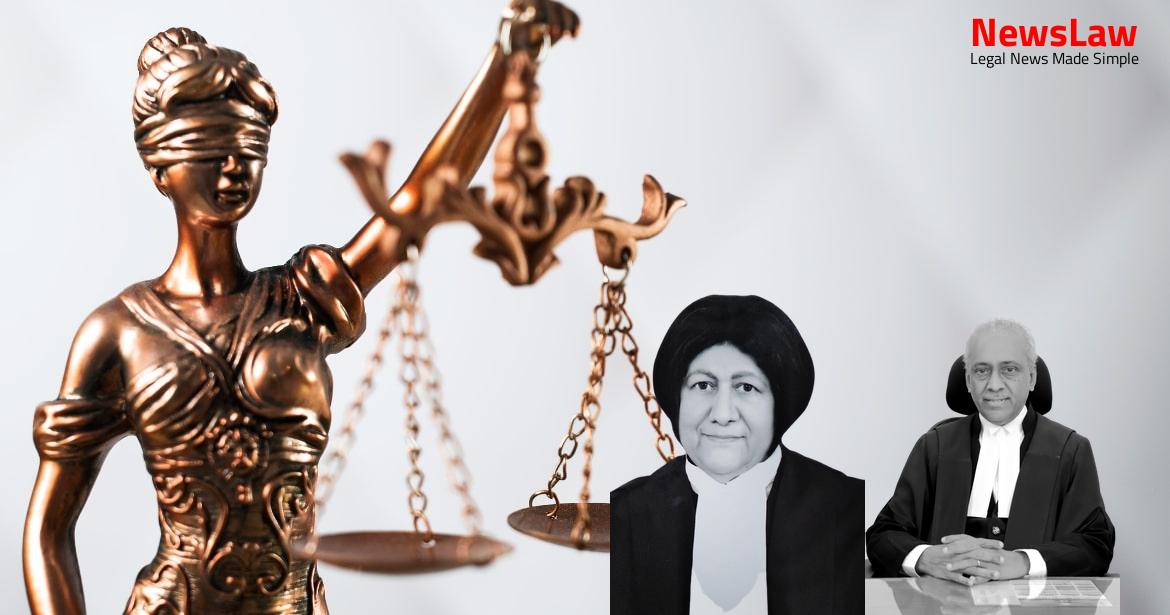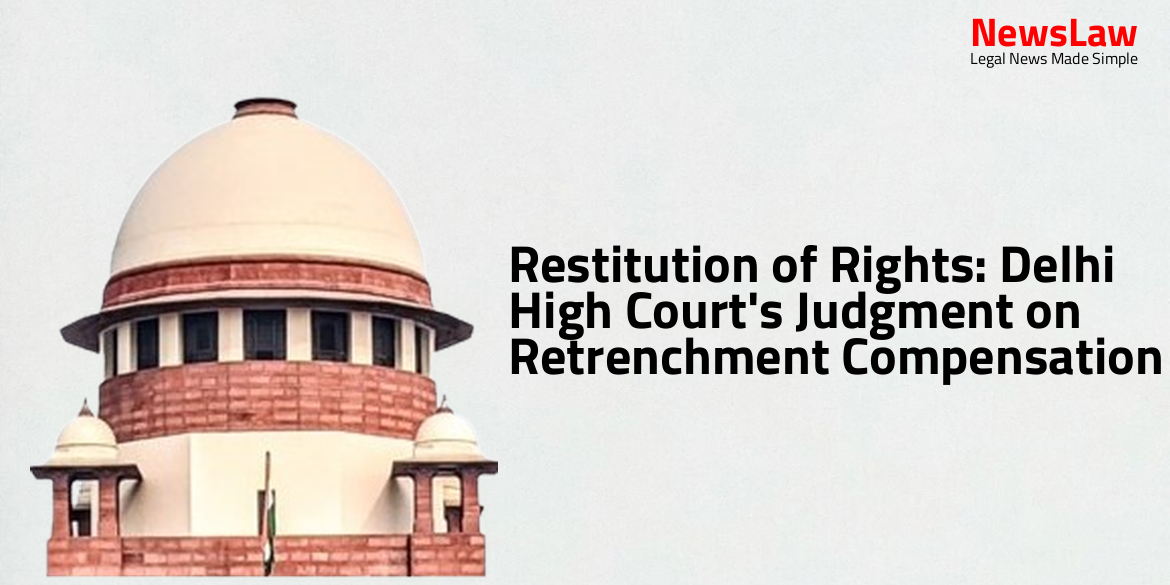In a significant ruling, the Supreme Court of India has upheld the customary right in the management of Andrott Jumah Mosque. The case delves into the historical lineage of the Pattakal family and their hereditary role as mutawallis of the mosque. Discover the intricate legal analysis and historical evidence that shaped this decision.
Facts
- The appellants claim that a compromise decree was passed in 1981 in a civil suit between their predecessors and Pattakal Koyammakoya Thangal, allowing the mosque to be managed by a committee elected by local residents.
- The respondents filed a suit in 1998 before the Waqf Tribunal, claiming the office of mutawalli of the Jumah mosque is vested with the Pattakal family.
- The appellants assert that the right to manage the mosque was historically vested with local residents through different systems like the ‘Amin and Karanavan’ system and later through a committee of elected public representatives.
- The respondents claim to be descendants of Saint Ubaidulla, who built the Andrott Jumah mosque and was its first mutawalli. The mosque is a public waqf registered with the Lakshadweep Waqf Board.
- There was a dispute in 1974 resulting in the removal of Pattakal Koyammakoya Thangal from the presidency of the committee managing the mosque.
- The appellants in different appeals disagree on whether the management by an elected committee continued or broke down after the dispute. However, they agree that the respondents did not have a customary right to the office of mutawalli.
- The appellants in the connected appeals claim to be suing as representatives of residents of Andrott Island, asserting that the office of mutawalli of the mosque should be vested in their family through customary tradition.
- The present dispute revolves around the office of mutawalli of the Andrott Jumah mosque located in Lakshadweep.
- The High Court found no evidence of anyone other than the respondents functioning as mutawalli of the mosque.
- The committee from 1966-1972 was for repairs and maintenance, not management, as per the High Court’s ruling.
- The compromise decree was deemed void, and the office of mutawalli was vested with the respondents by custom.
- Counsel for appellants admitted the mutawalli office can be customary.
- The Waqf Tribunal found no evidence of the mosque being managed by an elected committee.
- The High Court decreed one suit and dismissed another, while declaring a compromise deed void.
- The Tribunal found lack of evidence that Ubaidulla was the first mutawalli of the Jumah mosque.
- The customary right to the office of mutawalli was held to be with the Pattakal family by the Tribunal.
- The suit was dismissed, and parties were directed to draft a management scheme for the mosque.
Also Read: Tower Infotech Ltd. Bail Order Appeal
Arguments
- The compromise decree is binding against the respondents as the irregularity found was only procedural
- The burden was on the respondents to show that the decree was void due to the presumption under Section 114(e) of the Indian Evidence Act
- The public of Andrott Island has historically had a role in the mosque’s management which is registered as a public waqf
- The respondents’ family has been managing the mosque property as per documentary evidence
- The respondents did not specify in partition deeds which branch would hold the office of mutawalli, undermining their claim of hereditary right
- An office like mutawalli can be heritable by custom only if specifically pleaded and proved
- The High Court exceeded its scope by re-appreciating evidence and decreeing the respondents’ customary right based on legends and outdated materials
- The book ‘Futhuhathul Jesair’ should not have been relied upon as it was published after the suit was filed
- Documents not challenged by appellants before suit cannot now be used to claim the respondents were not mutawalli
- The committee of public representatives formed in 1966 did not have documentary evidence showing management of the mosque
- Sections 4 and 5 of the Wakf Act, 1954 were referred to regarding the List of Wakfs published by the Wakf Board
- Documents like Ex A3, Ex A4, and Ex A5 were presented to contradict the claim that a committee managed the mosque in 1966
- The abrogation of a hereditary right like mutawalli must be inferred from the family’s conduct over an extended period
- The office of Kazi and mutawalli are one and the same in Lakshadweep islands as per a Kerala High Court judgment
- The respondents cannot argue for a hereditary right to mutawalli after being denied the same for Kazi
- The respondents sought only the office of mutawalli in relief despite admitting that mutawalli and Kazi are the same
- The compromise decree dated 16.02.1981 was deemed illegal and void by both the Courts.
- The continuity of the customary office of mutawalli held by the Pattakal family could not be disrupted by small breaks in the 1920s.
- The formation of the committee in 1966, admitted by Patakkal Koyammakoya, was primarily for overseeing repair and maintenance work of the mosque.
- The respondents’ customary right to the office of mutawalli is not invalidated by the committee or the compromise decree, even if accepted.
- The historical materials indicated that the respondents were most likely descendants of Ubaidulla, who converted the people of the island to Islam.
- The abrogation of custom cannot be inferred solely from individual declarations without a continuous course of conduct by the family supporting it.
- The respondents’ family was not given notice or had a say in the terms of the compromise decree, rendering it non-binding on them.
Also Read: Priority of Employees’ Dues in Asset Sale: SARFAESI Act vs. Land Revenue Code
Analysis
- The judgment analyzed the historical records and documents to determine the customary right of the Pattakal family to the office of mutawalli of the Jumah mosque on Andrott Island.
- The court emphasized the importance of adherence to procedural rules in representative suits, particularly the necessity of obtaining leave of the Court for a compromise.
- Various historical materials, including Gazetteers, were considered to establish the uninterrupted succession of the Pattakal family as mutawallis of the mosque.
- The court acknowledged the distinction between the statutory office of Kazi and the customary office of mutawalli, recognizing the respondents’ claim to the latter despite changes in administrative mechanisms.
- The judgment highlighted the inability of the appellants to prove any breach in the respondents’ customary right to the office of mutawalli, based on the historical evidence presented.
- Violation of procedural rules during the compromise decree and failure to comply with the provisions of the Wakf Act were deemed significant, rendering the compromise decree void.
- The analysis underscored the delicate balance between customary rights and statutory appointments, affirming the traditional practice of the Pattakal family in managing the mosque.
- The court considered the broader social context in which the custom of mutawalli succession existed, taking into account specific instances and previous decisions as evidence.
- Historical opinions from various sources were scrutinized to validate the claims put forth by the Pattakal family regarding their hereditary right to the office of mutawalli.
- The court refuted contentions regarding the appointment of external authorities interfering with the family’s customary right, relying on a meticulous examination of relevant laws and historical data.
- The burden lies heavily upon the person asserting a custom to plead and prove clearly that they are governed by custom and not by general law.
- In Muslim law, there is no recognition of a right of inheritance to the office of mutawalli.
- While there is no absolute right to be appointed as a hereditary trustee under Muslim law, if the founder intended the position to be hereditary, it should be considered in the appointment of trustees.
- The Waqf Act, 1995 acknowledges that a waqf may have a hereditary mutawalli, but such appointment is not direct and depends on the practice of nomination by Mutawallis in the past.
- The claim of hereditary succession to the office of mutawalli must refer to the directions of the waqif at the time of dedication.
- The High Court observed that members of the family of the waqif should be given preference in appointment as trustees in waqfs created for charitable purposes.
- Clear and unambiguous evidence is required to establish the existence of a custom for hereditary succession to the office of mutawalli.
- In cases where a rule of hereditary succession is laid down by the founder or through custom, that rule should be followed.
- Succession to the office of custodian of a waqf is determined by the rules established by the founder, inferred from evidence of usage.
- The historical materials corroborate the hereditary lineage of the Pattakal family as mutawallis of the mosque, showing a continuity in the office.
- Appointment of trustees should be done with utmost care to ensure proper administration of the trust’s funds.
- The series of appointments of Mutawallis is generally assumed to be valid, implying compliance with the terms of the original dedication.
- Section 4(c) of the Kazis Act, 1880 states that nothing in the Act confers judicial or administrative powers or renders the presence of Kazis necessary.
- The section also specifies that any person can discharge the functions of a Kazi.
- The proviso to Section 69(2) mentions that if a hereditary mutawalli is removed, the next person in hereditary succession must be appointed as a member of the committee for administering the waqf.
- Appointment of a Kazi under the Act does not restrict any person from performing the functions of a Kazi.
- Evidence is sufficient to presume hereditary devolution as per the intention of Ubaidulla, the original wakif
- Custom of hereditary succession to the office of mutawalli is established
- Customary right to the office of mutawalli of the Jumah mosque is confirmed
- Continuous and invariable devolution of the office of mutawalli through successive appointments from within the Patakkal family is shown
- Exercise of customary right to the office of mutawalli is not unreasonable or opposed to public policy
Also Read: Landmark Judgement on Consumer Rights in Healthcare Sector
Case Title: ALIYATHAMMUDA BEETHATHEBIYYAPPURA POOKOYA Vs. PATTAKAL CHERIYAKOYA .
Case Number: C.A. No.-009586-009586 / 2010



